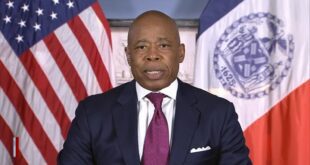For years, carriers of hepatitis B in China faced discrimination, including being fired from jobs, barred from schools, and rejected romantically. In 1992, it was estimated that around 10% of the population tested positive for the hepatitis B antigen, yet carriers were systematically excluded from participating in many aspects of society for the next decade. This led to fraudulent medical reports becoming prevalent, which is where Han Dong, the star of the film The Best is Yet to Come, begins his investigation. The plot is loosely based on the real-life Han Fudong, a journalist who paved the way for companies being banned from screening employees for the virus or terminating the contracts of carriers. At that time, over 120 million people were living with the disease in China.
The film, which toured the international circuit in 2023, has been compared to All the President’s Men and Spotlight. However, last month it was released in China, where it took in 52.3 million yuan in its first week at the box office, marking a significant accomplishment. The movie showcases investigative journalism and is set in 2003, during China’s reform and opening up phase, which made way for a thriving civil society. However, China’s press is no longer free as it once was in the late 1990s and early 2000s, and journalists face severe restrictions today. Reporters Without Borders reveals that there are now over 100 imprisoned journalists in China.
The film is also critical of the stigma surrounding blood in China. In the 1990s, close to 1 million people from Henan, a northern province in China, contracted HIV after selling their blood plasma to government-run clinics that did not follow hygienic procedures. The story also highlights how people living with HIV face similar kinds of stigmatisation to those depicted in the film, with healthcare providers in Guangzhou, for instance, refusing to treat nearly 40% of HIV-positive people.
The film’s director, Wang Jing, is interested in the alienation of individuals from mainstream society, with their struggle to stay afloat amid menacing, polluted, and corrupt cities. Moreover, he hails from Shanxi, an industrial province in northern China, where he collaborates with his mentor, Jia Zhangke, an acclaimed film director. Jia, who also makes an appearance in the film, suggested that Wang create a movie about journalism, despite the subject matter not being easy to broach in China.
Although the film depicts many sensitive issues, the Chinese censors approved it, and it has yet to face criticism directly from the government. However, the film does not challenge authority or any power, as Wang believes the topic is more complicated than that and is about humans.
 Mind Uncharted Explore. Discover. Learn.
Mind Uncharted Explore. Discover. Learn.

